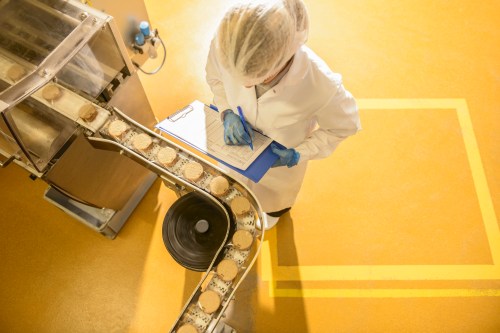S. Martinelli & Co is recalling nearly 174,000 bottles of apple juice sold in 28 states. The recall is over potential contamination with patulin, a toxin produced by mold, according to a notice issued by the Food and Drug Administration (FDA).
S. Martinelli & Co originally issued the recall on March 18, but the FDA gave it a Class II classification this week. The company has not issued a press release over the recall. This is the second recall the company has faced this year. It’s not clear at this time if anyone has gotten sick from the recalled bottles, but it’s understandable to have questions about how a toxin could end up in apple juice. Here’s what you need to know.
What is the Martinelli’s apple juice recall?
The recall impacts 7,234 cases of 10-ounce glass bottles of Martinelli’s Apple Juice. The cases feature four bottles per pack, and six packs per case. The recalled bottles have a UPC number of 0 41244 04102 2 and a best by date of December 5, 2026. (The FDA also has a list of specific batch numbers.)
The juice was sold in 28 states, according to the FDA:
- Alabama
- Arkansas
- Arizona
- California
- Connecticut
- Delaware
- Florida
- Georgia
- Iowa
- Illinois
- Indiana
- Kansas
- Kentucky
- Louisiana
- Michigan
- Missouri
- Mississippi
- North Carolina
- New Hampshire
- New Jersey
- New York
- Ohio
- Pennsylvania
- South Carolina
- Texas
- Utah
- Virginia
- Wisconsin
What makes this recall dangerous?
The FDA has labeled this as a Class II recall, which is the agency’s second most severe classification. This label is used to describe “a situation in which use of or exposure to a violative product may cause temporary or medically reversible adverse health consequences or where the probability of serious adverse health consequences is remote,” according to the FDA.
“Patulin is a toxic compound produced by certain molds—especially Penicillium expansum, which is commonly found on rotting apples,” explains Darin Detwiler, author of the book Food Safety: Past, Present, and Predictions and a professor at Northeastern University. “It’s not just a spoilage issue—this is actually a chemical hazard that has been linked to nausea, vomiting, and other gastrointestinal symptoms.”
In high-enough levels, patulin may pose more serious risks to immune and neurological systems, especially in children, who tend to be the most frequent drinkers of apple juice, Detwiler says.
The level of concern around the recall depends on how much was consumed and by whom, Detwiler says. “Small amounts of patulin may not cause noticeable harm in healthy adults, but repeated exposure or high levels could be dangerous, especially for children, pregnant individuals, and immunocompromised people,” he says.
That’s why the FDA has limits on patulin of 50 parts per billion and why companies issue recalls when those limits are exceeded, Detwiler explains.
How does this toxin end up in apple juice?
It’s not clear how patulin ended up in the recalled bottles, but Detwiler says this is a known risk with apple juice.
“Patulin can result from using damaged or moldy apples during juice production,” he says. “While industry standards emphasize visual inspection and sorting, even small amounts of contaminated fruit can lead to detectable levels of patulin in the final product.” It’s a good reminder that ingredient quality control is just as critical as sanitation or packaging is in food safety.
"Warm and humid growing conditions that occur during fruit growth, storage, or processing can promote fungal proliferation in fruits like apples and increase the ris k of patulin production," says Kelly Johnson-Arbor, MD, a toxicologist at MedStar Health.
Detwiler says that recalls over patulin are “relatively rare” compared to recalls over bacteria like salmonella or E. coli, but they’re not unheard of. “Most producers have preventive controls in place—like sorting and rapid mold testing—to avoid this,” he says. Though, Johnson-Arbor adds: "Fungi can still grow and produce mycotoxins like patulin despite the use of good manufacturing processes and careful post-harvest treatments."
A representative for S. Martinelli & Co did not respond to Well+Good’s request for comment by deadline.
What to do if you have the apple juice at home
The FDA didn’t provide clear instructions on what to do if you have the recalled juice at home. However, it’s usually recommended that you not drink the recalled bottles. (Detwiler points out that you can’t cook this toxin out, so trying to go that route isn’t recommended either.)
If you have these bottles at home, throw them out or return them to where you purchased them for a refund. You can also contact S. Martinelli & Co at 1-800-622-1868 with additional questions. If you feel sick or if you have other concerns about being exposed to patulin, contact your healthcare provider.
Sign Up for Our Daily Newsletter
Get all the latest in wellness, trends, food, fitness, beauty, and more delivered right to your inbox.
Got it, you've been added to our email list.








